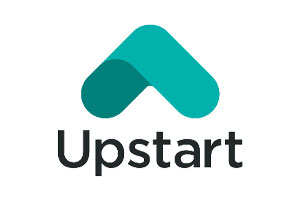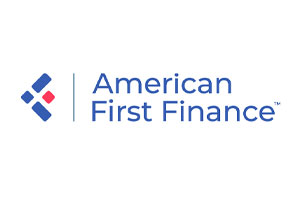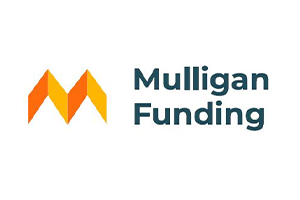We help fintech brands unlock their Card, Payment, and Lending Solutions, empowering them to help more people nationwide.

Delivering a broad suite of differentiated and secure banking and payments solutions to fintechs
Deploying scalable API-driven infrastructure for an optimal and efficient experience
Providing regulatory oversight guidance through our rigorous compliance and risk management framework
What We Do
At the intersection of banking and payments services to support your growth. How can we help you move forward?
Fintech Lending
Strategic Program Lending
We partner with you to streamline how loans are generated for your borrowers and deliver a far better experience for everyone.
- Consumer/Commercial Constructs
- Nationwide lender
- True lender
- Credit Enhancement Balance Sheet Program
Payments Hub
MoneyRails™
We bring multiple payment rails together under one application, offering users a single destination to send monetary transactions. MoneyRails will include:
- Ledgering technology
- Standing instructions
- Connectors for 3rd party integrations
- Support for multiple payment rails (ACH, Wire, RTP, FedNow, Mastercard RPPS, Visa Direct)
Cards
BIN Sponsorship & Card Programs
We offer a broad suite of financial services to drive customer acquisition, retention, and scale program revenue:
- Credit, Debit, Prepaid
- Commercial / Consumer
- Virtual / Plastic cards
- ATM Sponsorship
Business Banking
Reach Your Business Goals
We help solve some of your most pressing business challenges through our:
- SBA 7(a) loan programs
- Retail Point-of-Sale consumer loan solutions
- Equipment financing options
- Commercial Real Estate
- Business Checking accounts
Personal Banking
Meet Your Daily Financial Needs
We continue to serve families and small businesses through our full-service, top-ranked community bank offering:
-
- Checking & Savings accounts
- Certificate of Deposit (CD) accounts
- Owner Occupied Residential Real Estate Lending

About Credit Enhancement Balance Sheet Program
What is the Credit Enhancement Balance Sheet Program for our Strategic Platforms?
Addresses the challenges that lending and card programs face diversifying their funding sources and managing capital efficiency.
- Capital Efficiency
- Enhanced Funding
- Yield Enhancing
- Complete Offering
About Us
Let’s rethink what banking means.
We have stepped forward to advance the future of banking, lending, card and payment solutions for leading fintechs. We deliver a Credit Enhancement Balance Sheet Program, BIN Sponsorship, a Payments Hub (MoneyRails™) and Lending programs such as SBA 7(a), Owner Occupied RE, and Leasing, which provide flexibility for disciplined balance sheet growth. Through our compliance oversight and risk management-first culture, our team is well positioned to guide fintechs through a rigorous process to facilitate regulatory compliance.

Who We Serve
We help fintech brands disrupt banking for the better.
Our flexible credit, lending, cards and payments solutions eclipse traditional banking capabilities, removing critical roadblocks to fintech innovation.
News and Education
Explore our latest articles and podcasts.

Community Engagement
We move communities forward.
Our mission is to strengthen the communities we live and play in. We guide people to improve their financial situation, contribute financially to non-profit organizations, and volunteer our time at various non-profits.
Moneywise
Make wiser financial decisions.
What’s Moneywise?
It’s your education hub for all things financial. From mortgages and small business loans to credit scores and savings advice, Moneywise offers you actionable content to help you save and earn more, make smart investing choices, and navigate many other money matters.


Frequently Asked Questions
Our experts answer your questions.
-
Which documents do I need to move forward through the loan process?
Provide balance sheet statements for your year-to-date income verification with profit and loss statements. You will also need the previous two years’ tax returns.
-
How long does the application to approval process take?
Typically, one week based upon all documents received.
-
After I’m approved for my loan, how long will it take to close?
We order appraisals and title work immediately, so the close timeframe is between 2-3 weeks after final approval.
-
Who is authorized to make credit decisions?
Credit decisions are made by the SBA or qualified lenders may be granted delegated authority (PLP) to make credit decisions without SBA review.
-
What kind of collateral is needed?
Lenders are not required to take collateral for loans up to $25,000. For loans in excess of $350,000, the SBA requires that the lender collateralize the loan to the maximum extent possible up to the loan amount. If business fixed assets do not “fully secure” the loan the lender may include trading assets (using 10% of current book value for the calculation) and must take available equity in the personal real estate (residential and investment) of the principals as collateral.
-
Can I make additional deposits during my term?
All deposits must be made at the beginning of your term and can be withdrawn at maturity.
-
How safe is it to stash cash in a CD account?
CD savings accounts allow you to save with low risk. FinWise Bank is a FDIC insured1 institution. You can rest assured that your CD account will be just as safe as traditional savings accounts.
-
What happens at the end of my CD term?
At the end of your term, you may withdraw from your account the full amount you deposited into the account plus any interest you have earned while carrying out your term. Or keep it set to auto renew2 for even more earnings!
-
What if I need access to my funds before the end of my term?
Before opening CD account, you should consider when you need access to your funds. To receive the full benefits of a CD Savings account you should refrain from withdrawing from your account. However, we understand life happens.
If you withdraw early there is a penalty of 90-day loss of interest. If your Account has not yet earned enough interest so that the penalty can be deducted from earned interest, or if the interest already has been paid, the difference will be deducted from the principal amount of your Account. For fixed rate Accounts, we will use the rate in effect for your deposit. -
What features are available in online banking?
Our online banking gives you added control and convenience for personal and business accounts. Here are some of our most-used features:
- The FinWise mobile banking app to access your existing online bank account on the go
- Make, collect, or schedule payments
- Customize activity alerts and account notifications
- Pay bills or transfer funds across accounts
- Complete ACH and wire transfers
- Deposit checks remotely
- Stop payments that have not yet cleared
- Send money to friends and family
- View statements and reports
Available 24/7, online banking is the best way to monitor and manage your FinWise accounts without extra trips to the bank!
-
Is a small-dollar loan right for you?
Small-dollar loans (SDLs) are designed for an emergency such as an unexpected car repair or a large retail purchase. Intended to help consumers meet an immediate financial need and enable them to improve their overall financial situation, SDLs often feature “graduation” provisions that allow successful borrowers to qualify for lower interest rates and better terms the next time they apply for credit.
-
Why was I denied online access?
If you are a FinWise Bank customer and are enrolled in online banking, login here or go to our Help Page. To enroll in online banking visit one of our locations to get started.
If you are a borrower trying to access your loan account made through a third-party Strategic Platform, visit Strategic Platforms to learn more about your loan service provider.
-
What does FinWise Bank have available for me?
Our products include checking and savings accounts and personal loans. Finance your new home construction project or leverage the value of your home with our home equity lines of credit. Browse the accounts and services we offer by visiting our Personal Banking page.
-
What is a Strategic Platform?
Online or mobile platforms may be created by third-party technology companies, and as a leader in FinTech innovation, we develop new products and services using tech platforms that make banking easier and more accessible to our customers. Through online or mobile portals, we process loan applications quickly, give simple financing options, and may be able to reach new customers who have had trouble accessing credit or banking services in the past. Our Strategic Platforms offer different types of lending services and go through a rigorous approval process to ensure they comply with strict banking regulations and compliance standards. To find a credit service that’s right for you, learn more here.
FinWise moves you forward.
We adapt in ways traditional banks won’t. Learn how our forward-thinking philosophy benefits you.
Secure and Insured
Your trusted financial partner.
Our commitment to your financial well-being means we never sacrifice credibility for progress.











